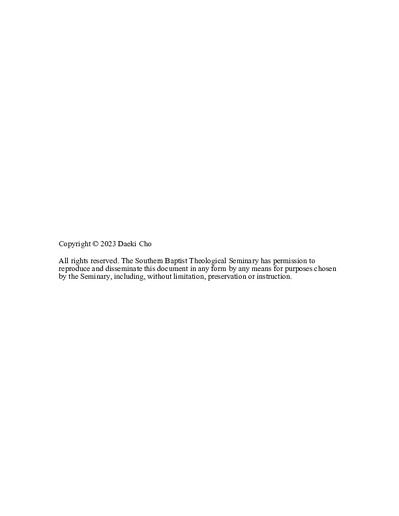| dc.description.abstract | This dissertation argues that Augustine’s conceptualization of the human soul is intricately linked to the guidance provided by Scripture and tradition. Augustine believed that the Scriptures teach the creation of the human soul, its anthropology, spiritual growth, and its eventual reunification with the resurrected body.
The first chapter introduces the thesis, methodology, and historical overview of academic discussions surrounding Augustine’s understanding of the human soul. This chapter positions the argument of this dissertation within the contemporary debates, elucidating the significance of the research conducted and its relevance to current scholarly discourse.
The second chapter presents the creation of the human soul by God. The creation ex nihilo takes center stage, setting Augustine’s perspective apart from Neoplatonism and other philosophical ideologies. This chapter shows Augustine’s articulation of the Christian doctrine of creation ex nihilo, examining its presence in various works by him.
The third chapter unfolds the human soul’s life, centering on the relationship between the soul and immortality, the spirit, and the body. Augustine’s unwavering reliance on the authority of the Scriptures proves his steadfast commitment to the Christian faith.
The fourth chapter explores the distinct concepts of ascension embraced by Augustine and Plotinus. By scrutinizing these concepts of the soul’s ascension, this investigation underscores Augustine’s commitment to the authority of Scripture, which teaches that the soul’s ascension encompasses its life after Christ.
The fifth chapter illustrates the culmination of the human soul’s journey. Augustine’s vision delineates the anticipated trajectory of the human soul following the cessation of the physical body, ultimately culminating in its reunion with the resurrected body as outlined in the teachings of Scripture. This distinctive perspective on the soul’s end emphasizes the inherently Christian nature of Augustine’s teachings.
The sixth chapter explains Augustine’s methodology for categorizing sources in depicting the human soul. In this framework, Scripture precedes alternative ideologies, with philosophical reasoning considered secondary to Scripture yet superior to other secular thoughts. | en_US |

